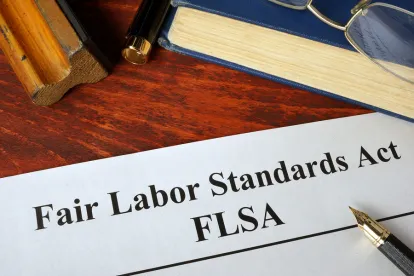In a 29-page decision, the U.S. Court of Appeals for the Second Circuit held in Fisher v. SD Protection Inc., No. 18-2504, that a district court had abused its discretion by rewriting a Fair Labor Standards Act (FLSA) settlement agreement to modify the allotment of the settlement funds to dramatically reduce the fees and costs provided to plaintiff’s counsel. In its holding, issued on February 4, 2020, the court determined that the district court had committed three errors requiring that its decision be vacated and remanded for further consideration.
The Three Errors
First, the court confirmed that a district court cannot rewrite the terms of a proposed FLSA settlement agreement submitted by and on behalf of the parties for judicial approval, as was done here. The court noted that a district court has one of three options when reviewing a proposed FLSA settlement agreement for reasonableness and fairness: (1) accept and approve the proposed settlement agreement; (2) reject the proposed settlement agreement while offering the parties the opportunity to explore alternatives and to revise the agreement with terms deemed acceptable to the court; or (3) have the parties proceed to litigation. The court held that FLSA settlement agreements are contracts that cannot and must not be judicially rewritten when the terms and contents therein are clear and unambiguous.
Second, the court held that a district court cannot and should not apply a proportionality standard or test when determining the reasonableness of attorneys’ fees contained in a proposed FLSA settlement agreement. Here, the district court incorrectly surmised that there is a “maximum fee percentage” of 33 percent of the total settlement amount when determining the appropriateness of attorneys’ fees in FLSA cases. The court noted that such an outcome-determinative ceiling could have a chilling effect on the plaintiffs’ bar, which might not otherwise consider, take, or prosecute so-called “‘run of the mill’ FLSA cases” where the alleged damages are modest or de minimis at best. Such a result, the court found, would run contrary to the text, legislative purpose, and remedial goals of the FLSA. Although the parties had agreed to a $25,000 settlement with $23,000 of the monies earmarked for attorneys’ fees and costs and the remaining $2,000 for the plaintiff, the court held that such an agreed-upon distribution of fees and costs may not be unreasonable, based on the scope and nature of the legal representation and the corroborative proof provided.
Third, the court maintained that a district court cannot apply the same standard to determine the reasonableness of attorneys’ fees and costs contained in a proposed FLSA settlement agreement as compared to a fee application submitted by a plaintiff’s counsel after a plaintiff has prevailed through litigation or settlement. The court determined that the district court had “erred here by evaluating the settlement agreement under the lens of a fee application, and then proceeding to rewrite the agreement.”
Key Takeaway
Defense counsel may want to remain vigilant and aware that the plaintiffs’ bar can make the proverbial mountain (of legal fees and costs) out of a molehill (a case where perceived and/or actual alleged damages are modest or de minimis at best) if such legal fees and costs are proper and properly documented based on the Second Circuit’s reading of the text, legislative purpose, and remedial goals of the FLSA.





 />i
/>i

